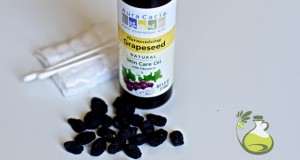
Excessive plaque and bacteria in the mouth often leads to receding gums, gingivitis, or gum disease, bad breath and gum discoloration according to TopDentists.com. They recommend tea tree oil for gum disease elimination. How to use tea tree oil with no harm?
Contents
Tea tree oil for dental care
What is tea tree oil? Tea tree oil is a natural antiseptic, it successfully combats bacteria and fungi. Tea tree oil has terpenoids, such as terpinene-4-ol and cineole, which effectively destroy the bacteria even that are antibiotic-resistant, as the University of Michigan Health System notes. Although historically tea tree oil has been used to heal wound infections, more recent researches show that it can be applied for preventing and treating a variety of dental problems.
Research of tea tree oil for gum disease
A study associated with tea tree oil for receding gums and gingivitis was published in the “Australian Dental Journal”. Participants massaged a tea tree oil gel into their gums with a toothbrush twice a day. As a result the gingivitis index and gums bleeding reduced, although tea tree oil could not lessen excess plaque. It simply combats the bacteria causing bad breath and gum disease.
SEE ALSO: How to Make a Tea Tree oil Toothpaste
Dosage and Application
If you use tea tree oil for bad breath, bleeding gums or other dental problems it is recommended to apply a tea tree oil toothpaste, gel or mouth wash. You may buy them at health care stores, online on amazon.com or make at home. There are some efficient tea tree oil mouthwash recipes on Internet.
YOU MIGHT ALSO LIKE: Use Tea Tree Oil for Herpes
Warning
Use only a 5%-dilution of tea tree oil for dental care and never swallow tea tree oil toothpastes or mouth washes. Tea tree oil is toxic when ingested. It is not allowed for children’s and animals’ dental care. Pregnant and breast-feeding women shouldn’t use tea tree oil toothpastes and mouth washes as there is no enough evidence concerning safety or danger of tea tree oil for pregnant women.
Tea tree oil side effects are possible. Some people are allergic to tea tree oil. If you have ever had allergic reactions to eucalyptus, for example, you should avoid tea tree oil both topically and as a part of dental care.
 Oilypedia.com – Benefits And Uses Of Supplemental and Essential Oils
Oilypedia.com – Benefits And Uses Of Supplemental and Essential Oils 


